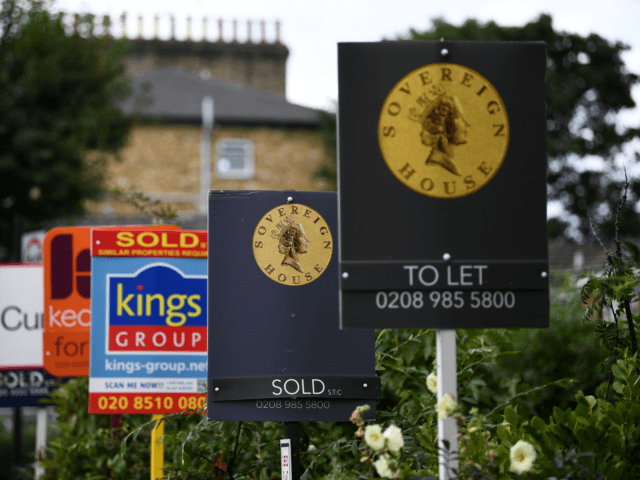A ‘Great Reset’ of the British property market is currently underway, with big banks buying up houses across the country and edging out first-time homebuyers.
Financial firms, including banks and pension funds and asset managers, are partnering with housing developers to buy up new homes for the purpose of renting them to the public. The so-called “build-to-rent” housing scheme sees groups of properties bundled together to be traded as assets between different firms, rather than actually going to market.
Currently, build-to-rent properties only account for around 5 per cent of the market, but the estate agent Savills told The Times that it could account for 1.75 million properties by the year 2031.
Through this process, as well as buying up traditional homes, Britain’s second-biggest bank and largest mortgage lender, Lloyds Banking Group — bailed out by taxpayers in 2009 — is planning on becoming the country’s largest private landlord, with 50,000 properties by the year 2030.
Director of residential research at Savills, Lawrence Bowles said: “Institutional investment in residential property to rent has come a long way. I think ultimately we are reaching a point where nearly everybody in the country will own part of a home because their pension fund is buying it up.”
The scheme has grown in popularity amid interest rates remaining at historic lows and housing prices expected to continue rising, providing a low-risk investment opportunity.
However, some have warned that the scheme will add further impediments to average Britons attempting to purchase their first home.
The chairman of the Housing, Communities, and Local Government committee in the House of Commons, Labour MP Clive Betts, said: “If it is the case that these sorts of investments are forcing out, or jumping in front of, first-time buyers then that is where problems start to occur.
“The housing crisis continues to loom large and we should be doing everything to allow first-time buyers on the property ladder, not allowing them to be pushed to the back of the queue.”
One such young Briton, 22-year-old receptionist Hannah Harrison of Peterborough, said that she is currently trying to save up for a house deposit by living at home with her parents — but fears she will not be able to compete with giant banks such as Lloyds.
“I want to live here, all my friends and family are here and [the development] would be an absolutely ideal location for me, but we’re completely priced out.”
“It feels like [banks] are cheating the system. They have the money to buy it and it pushes prices up for the rest of us.”
The practice of big banks and financial firms buying up property has not been confined to the United Kingdom. In the United States, for example, investment firms such as BlackRock and Blackstone have been on a buying spree of houses throughout America.
The purchases have been seen as a potential hedge against inflation as the federal government has dramatically increased spending during the Chinese coronavirus crisis.
The scheme is strikingly similar to the so-called Great Reset initiative from the globalist World Economic Forum (WEF), which has predicted that the average citizen will in future “own nothing and be happy“.
BlackRock CEO Larry Fink happens to serve on the board of trustees for the WEF.
Even before banks entered into the fray, potential British homebuyers have long been under pressure, with mass migration over the past two decades sharply driving up demand, for example.
Indeed, a report from the Migration Watch UK think tank in December found that over 100,000 new homes would need to be constructed per year in England alone to keep up with the demand placed on the real estate sector by mass migration.
Follow Kurt Zindulka on Twitter here @KurtZindulka

COMMENTS
Please let us know if you're having issues with commenting.